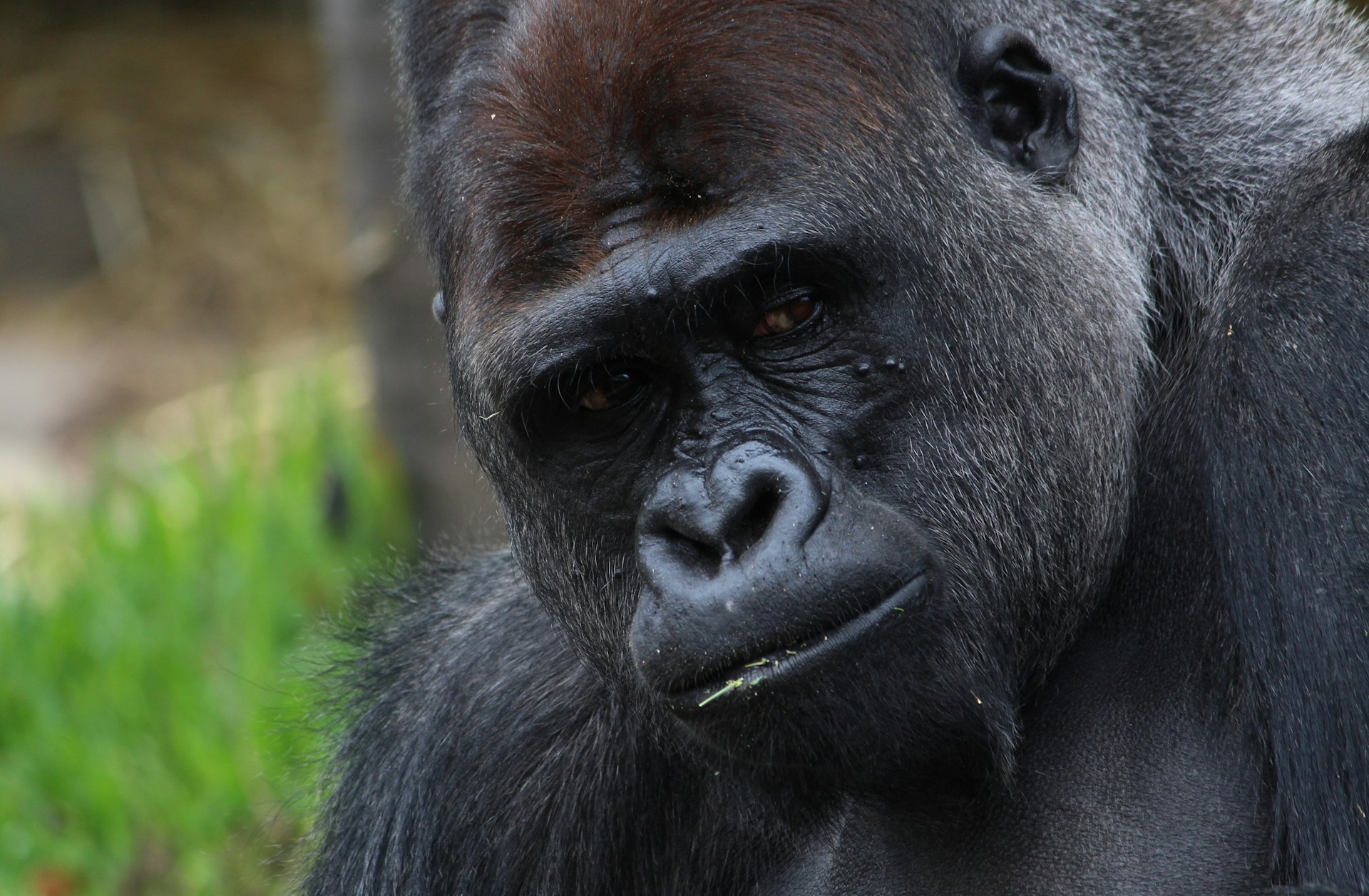Birthing Class
Braxton & Hicks never played Vaudeville for laughs. There was no curtain to this bloody show. We, the husbands, sat in the boardroom and waited for mothers to pee when the obstetrics nurse turned.
“I’m glad we’re alone,” she said. She pulled out a tiny figurine of a silverback gorilla from her black bag. “He’ll be waiting in the Labor Room for you,” she said, rubbing the gorilla’s head with her thumb.
I sucked on a Life Saver the size of an undilated cervix. The nurse stared us into silence.
“He knows all the secret problems between you two. Labor brings out more than just a baby.”
I remember when that girl turned ape at the state fair. The witch doctor hexed her good in the tent. She fell into a trance under a red light and grew hairy and large. We chanted, “Gorilla, Gorilla, Gorilla, Gorilla, Gorilla,” but the man with the bullhorn always looked worried, and she broke through the chains much too easily. “Run, children!” he screamed. The others made it out, but the gorilla was fast and blocked the only flap I could find. I saw the eye behind the eye twitch before it went black, before I went to the grass to cry.
“At ten centimeters,” the nurse said, after the mothers returned, “you’ll be her stirrup.” She lay on the floor. Her legs crawled on the air. She asked two men to man her calves. I felt the prickle of hair above her sock.
“Glottal breathing is not ladylike,” she said, “but it’ll get the baby out easier.” She scrunched her face and grunted, pressing her heel harder into my palm. “Grunt in cadence, ladies,” she said. “Hoo, Hoo, Hoo, Hoo.” The mothers mimicked the sound.
Later, the husbands toured the cafeteria while the mothers sat and snacked.
“Here,” the nurse said to us. She held up a bunch of bananas and pulled one off for each man.
“Make a wish,” she said.
We each snapped the yellow stem, then peeled it back white.
The Cap
At five, Porter’s uncle told him if he didn’t sleep with a toboggan cap on at night, his brain would fall out of his ear and he would die. For the rest of his life, Porter followed this advice, his foundational education too poor to disabuse him otherwise. He went to a mediocre parochial school in a mediocre Midwestern city full of bureaucrats and cattle, a place where fear was fertilized alongside symmetrical fields of soy. What if all those grammar school biology classes were wrong? he asks himself even now at night, a married man with kids. After all the same man who taught him his last anatomy class was also saddled with teaching history, geography, math, and religion. This muscular little man named Mr. Zorn wore his hair in a tightly permed mullet and doused himself with Polo cologne every day. He ran his class with martinet precision, putting all of his notes on an overhead projector that the class dutifully copied into their own notebooks and promptly forgot despite Mr. Zorn’s promptings to “pour their brains out on the page” during his exams.
Mr. Zorn’s pedagogy consisted of gesturing wildly to them as he spoke, much like a poor magician Porter once saw at a birthday party in a Burger King, who tried to cover the flaws in his tricks’ presentation by flapping his cape more and more. Except Mr. Zorn did not have a cape, only a mullet, whose long rows of brown, chemically-curled hair glistened under the fluorescent lights, shaking and bouncing behind him, until at some point, lost in a trance, Porter saw all the hairs congealed into one, coiled mass on the back of Zorn’s neck, as if in a greater feat of magic, Mr. Zorn’s lecturing on the basal ganglia and the medulla oblongata somehow transformed his hair into the very organ he spoke of. But Porter knew Zorn was no sorcerer. No, never in all Mr. Zorn’s attempts did he say (or spell) the word medulla correctly, usually opting for the more common Medusa-on-the-Grotto or Modular Obligation, or, sometimes, if too near a geography lesson, Mongolia Oblation.
Barbed by such memories, for the next twenty years, Porter has worn the knit cap to bed, hiding it under his pillow from college roommates and occasional girlfriends alike and now his wife, who, unanchored by any cranial fears or grade school incantations, lets him check on his toddling son and daughter before Porter goes to bed every night and never asks why in his back pocket, he carries two knit caps or why when he brings them out of bed in the morning for their wake-up-mom kiss, their hair is full of fuzz like their father’s.
“It must be genetics,” she says.
He nods and says, “I think so.”
